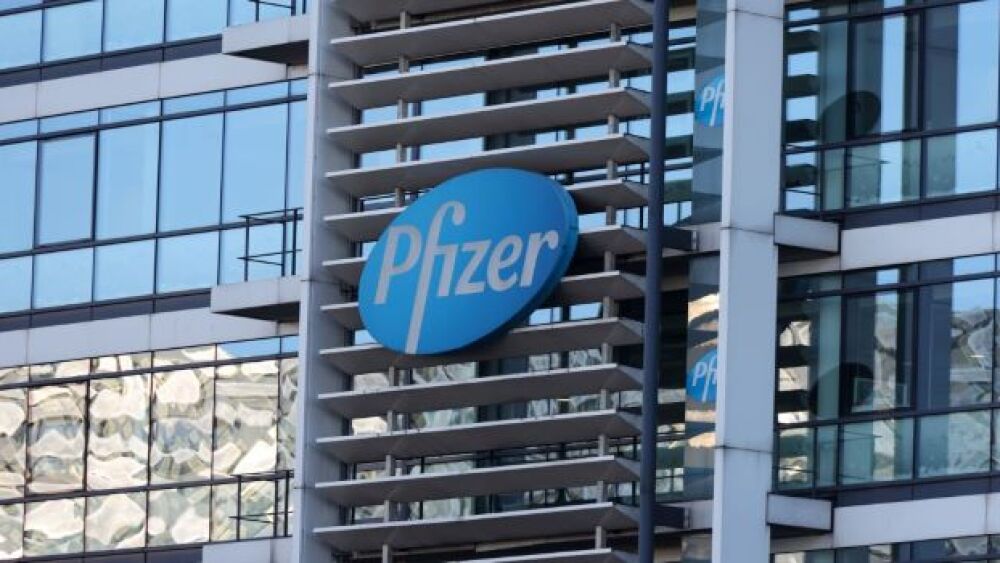Pfizer with Headlands Research plans to launch new clinical trial sites in areas that have highly diverse populations.
Pierre Suu/Getty Images
One year after committing to bridge the diversity gap in clinical trials, Pfizer has continued to push forward in meeting its promise. On Thursday, the pharma giant partnered with Headlands Research to launch new trial sites in areas that have highly diverse populations.
Historically, minority populations have been underserved by the life sciences community, and that has particularly been seen in the make-up of clinical trial participants. The African-American and Latino populations in the U.S. have a disproportionate burden for certain diseases but are frequently underrepresented in biomedical research. Some studies have shown that medications that treat a broad population of patients are less effective in minorities, such as the asthma drug albuterol. The need for a greater variance of ethnicities and races in clinical trials has been an increasing concern.
The partnership between the two organizations is a multi-year commitment. Headlands and the pharma giant intend to establish multiple clinical trial sites across the country in areas where there is a highly diverse population. The first clinical trial site to be established through the partnership will be in Brownsville, Texas. According to U.S. Census Bureau’s 2020 data, Brownsville has a population of 186,738 people. Of those, a significant percentage of the population is of Latino heritage, particularly when the surrounding area is taken into consideration.
At the time of this announcement, it is unknown what kinds of clinical trials the partnership expects to run in this area of Texas. Mark Blumling, chief executive officer and founder of Headlands Research, a network of clinical trial sites, hailed the partnership with Pfizer. He said the pairing focused on a commitment to clinical trial diversity takes another “meaningful step” toward achieving an important goal in drug development. Bay Area-based Headlands has undertaken a mission to significantly increase the participation of diverse ethnicities in clinical trials.
“Diversity is a key pillar of our commitment to ensure clinical trials represent broader populations,” Blumling said in a statement.
In March, Bristol Myers Squibb sponsored a symposium examining the lack of diversity in oncology trials. That symposium focused on a paper that revealed that of 230 clinical trials in oncology conducted in the United States between 2008 and 2018, three-fourths of the participants were Caucasian. The data showed that whites made up 76.3% of the trial population, while Asians accounted for 18.3%, Hispanics 6.1% and Blacks just 3.1%.
Pfizer and BMS, as well as other companies across the biopharma industry, have recognized the necessity of increasing diverse populations of clinical trial participants. Last year, Pfizer unveiled a clinical trials diversity report that included a baseline of participants by race. The company said it is committed to “achieving racially and ethnically diverse participation at or above U.S. census or disease prevalence levels” when appropriate in all of its clinical trials.
The Pfizer and Headlands Research collaboration comes about three months after Medable and CVS teamed up to improve patient access to clinical trials. The partnership will pair CVS’ MinuteClinic sites with Medable’s decentralized clinical trial platform. Became of the widespread of MinuteClinic sites across the United States, the new partnership means that a significant percentage of the population will be close to a clinical trial site. CVS will employ Medable’s SaaS platform in order to enhance patient access, engagement and retention. This will also enable the sites to capture the required endpoint data and other information assessed during a trial both onsite and remotely.
The SaaS platform, which has been deployed across the globe, has minimized the need for in-person site visits, enabling patients to realize unprecedented results, including a 200% increase in enrollment, 90% retention rates and a 50% cut in cost reductions, Medable said at the time the partnership was struck.
Last month, the U.S. Food and Drug Administration called for increasing clinical trial diversity in new draft guidance. This new guidance recommends that drug and medical product developers submit a Race and Ethnicity Diversity Plan to the agency early in clinical development.
“The U.S. population has become increasingly diverse, and ensuring meaningful representation of racial and ethnic minorities in clinical trials for regulated medical products is fundamental to public health,” FDA Commissioner Robert M. Califf said in a statement. “Going forward, achieving greater diversity will be a key focus throughout the FDA to facilitate the development of better treatments and better ways to fight diseases that often disproportionately impact diverse communities.”
Featured Jobs on BioSpace





